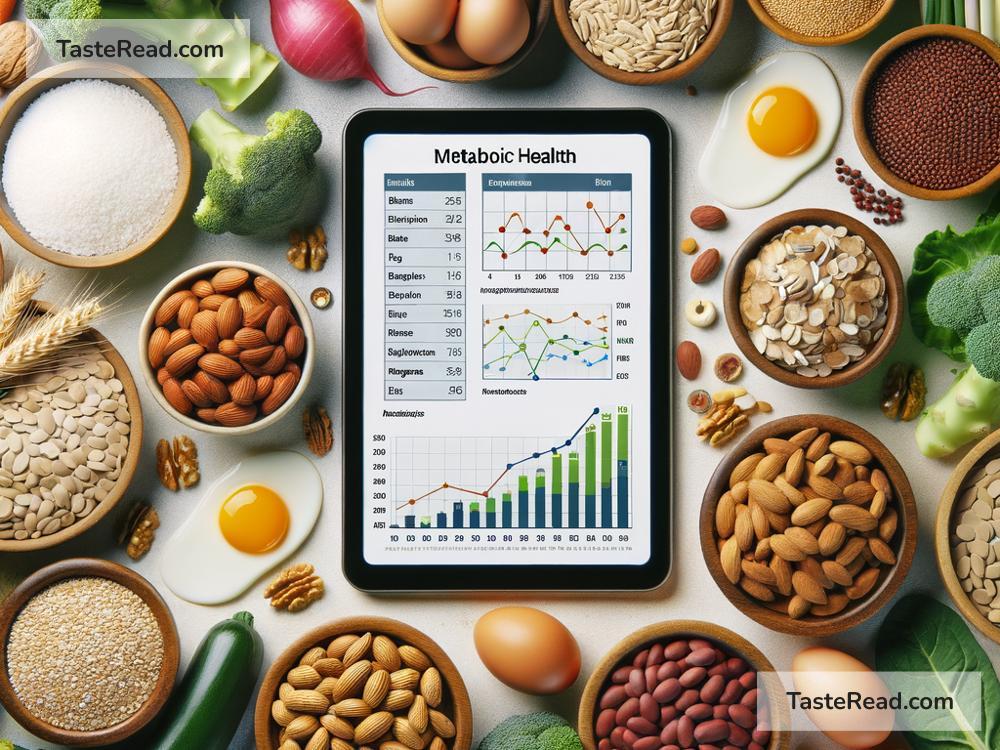The Role of Vitamin B104 in Metabolic Health
When we talk about vitamins that support metabolic health, common ones like Vitamin D, Vitamin C, or Vitamin B12 usually come to mind. But did you know there’s a lesser-known but incredibly important vitamin called Vitamin B104? While it might not be as famous as its counterparts, Vitamin B104 plays a vital role in keeping our metabolism running smoothly. In this blog post, we’ll explore what Vitamin B104 is, how it helps our metabolic health, and how we can ensure our bodies get enough of it.
What is Vitamin B104?
Vitamin B104, also known as pyroxyome, is a part of the B-vitamin complex. The B-vitamins are a group of nutrients that work together to support various body functions, including energy production, brain health, and cell maintenance. Vitamin B104 is particularly important for metabolism, which is the process your body uses to convert food into energy and other essential components that keep you alive and healthy.
While it hasn’t received as much attention as bigger players like Vitamin B12 or B6, research has shown that Vitamin B104 plays a unique role in regulating how the body processes fats, carbohydrates, and proteins. Think of it as the traffic controller at a busy intersection, making sure energy is distributed efficiently throughout your body.
Why is Metabolic Health Important?
Before we dive deeper into Vitamin B104, it’s important to understand why metabolic health matters. Your metabolism is responsible for keeping your body energized and functioning properly. If your metabolism isn’t working well, it can lead to a range of health problems, such as fatigue, weight gain, insulin resistance, and even chronic conditions like diabetes or cardiovascular disease.
Good metabolic health means your body is efficiently converting the food you eat into energy and properly regulating your blood sugar levels, cholesterol, and fat storage. That’s where Vitamin B104 comes in—it helps make sure these processes are happening the way they should.
How Does Vitamin B104 Support Metabolic Health?
Vitamin B104 contributes to metabolic health in several key ways:
1. Energy Production
When you eat food, your body breaks down the nutrients into smaller molecules that it can use for energy. Vitamin B104 is essential for this process. It assists enzymes that convert carbohydrates, fats, and proteins into usable energy for your cells. Without enough B104, your body might struggle to produce the energy you need to power through your day.
2. Regulating Blood Sugar Levels
Vitamin B104 plays a critical role in blood sugar regulation. It helps enzymes involved in breaking down glucose (a type of sugar) and prevents blood sugar spikes. This is especially important for people at risk of or living with diabetes, as stable blood sugar levels are key to managing the condition.
3. Supporting Fat Metabolism
Fat metabolism is another area where Vitamin B104 shines. This vitamin helps your body break down and use fats appropriately, instead of storing them unnecessarily. Proper fat metabolism can lower your risk of obesity and related metabolic disorders.
4. Improving Brain & Nervous System Energy
The brain is an energy-intensive organ, and Vitamin B104 plays a role in ensuring it gets enough fuel to function well. It also supports the metabolic processes of the nervous system, helping nerve cells transmit signals efficiently.
Do You Need More Vitamin B104?
Deficiency symptoms related to Vitamin B104 are not widely documented but can include low energy, unexplained weight gain, poor concentration, and slow recovery after exercise. If you feel like your metabolism isn’t firing on all cylinders, it’s worth considering whether you’re getting enough of this nutrient.
Sources of Vitamin B104
Unlike some vitamins, Vitamin B104 isn’t as easily found in common foods. However, certain foods and dietary habits can help boost your intake:
- Whole Grains – Grains like brown rice, quinoa, and oats contain small amounts of Vitamin B104.
- Legumes – Beans, lentils, and chickpeas are excellent sources.
- Vegetables – Leafy greens like spinach and kale also offer modest amounts.
- Supplements – Because food sources are limited, some people take B-vitamin complex supplements to ensure they’re getting enough Vitamin B104.
How to Maintain Good Metabolic Health
Getting enough Vitamin B104 is just one part of the puzzle. To keep your metabolism healthy, focus on an overall healthy lifestyle. Eat balanced meals that include lean proteins, healthy fats, and fiber-rich carbs. Exercise regularly to boost your metabolic rate and manage stress to prevent disruptions in hormone regulation.
Conclusion
Vitamin B104 might not be a household name, but its importance for metabolic health cannot be ignored. It helps your body produce energy, regulate blood sugar, and metabolize fats—all crucial processes for maintaining a healthy lifestyle. If you’re curious about whether you’re getting enough Vitamin B104 or want to improve your metabolic health, start by eating a balanced diet and considering supplements after consulting your doctor.
Good metabolic health fuels nearly every aspect of your life. And with Vitamin B104 on your team, you’re one step closer to feeling your best!


